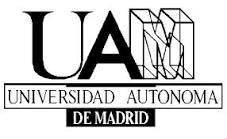Multiplicities in Motion: Affects, Embodiment and the Reversal of Cybernethics. 3.000 Years of Posthuman History. Call for Papers

> Introduction
> Approach to the Topic
> Submissions

Introduction
This is a call for the selecition of a maximum of 10 papers to be presented during Metabody Phase 1 meeting. A call within the framework of Common Body work group of the Commons Lab.
METABODY is a 5 years project starting July 2013, with the support of the European Commission and the participation of 28 partners from 14 countries, coordinated by Reverso.
Metabody will elaborate a critique of the unsustainable tendencies of cultural homogenisation of Information Society and develop new technocultural paradigms that highlight the embodied differences in expression and communication, culminating in a mobile experimental architectural structure containing interactive multisensorial laboratories for performances, installations, workshops, seminars, residencies and continuous research, that will tour throughout 9 european cities.
More information here.
Approach to the Topic
Keynote speaker: Dr. Katherine Hayles, Duke University
The control of movement, of multiplicity and emergence, is a fundamental historical preoccupation of power regimes. In despise of other traditions and knowledges, our current perception of movement is profoundly conditioned by a mechanistic tradition, with roots in euclidean geometry, Renaissance perspective, cameras, screens and ubiquitous interfaces. This tradition assumes movement to be subsidiary to matter and external to it; but movement is immanent and ontogenetic at all levels across the molecular and cellular, individual and social, planetary and cosmic.
In the past decades there has been an overwhelming development of new technologies for sensing and choreographing movements of bodies at all scales, human and non human, as well as a new realm of technologies of capitalization, preemption and production of emotional and affective spheres that have become central to the current functionings of power: a triple affective turn that operates increasingly on the microscale of movements while it appeals directly at the production and modulation of emotional and affective spectrums, both at the level of recognisable human emotions and of imperceptible affects.
The paradigm of the panopticon as described by Foucault, seems to have transformed into a panchoreographic: a new (and old) regime of affective and kinetic power, whose privileged field of operations is in the structuring and preempting of perception and movement. The panchoreographic exceeds the panopticon in that it accounts for both the visible and the invisible. The panchoreographic engineers a superalignment of perception built upon multiple strata, from euclidean geometry and Renaissance perspective to ubiquitous cameras, screens and interfaces.
What is the role of Information, conceived as disembodied pattern, distinct from its material substrate, in this turn of Biopower? How, when and why has this transformation of Biopower into an affective-kinetic power happened? What paradigms, objects, practices and spaces have been forged by movement alignments throughout multiple temporalities? What is the role of photography, visual arts and performance arts in this process? How can we redefine technological paradigms embracing corporeality in its irreducible differential becoming, rather than erasing it?
If cybernetics is in the substrate of what Katherine Hayles has described as our present posthuman condition, how has the posthuman transformed over the last decades, what are its (increasing) dangers and (failed) promises? How far is the human a perceptual fiction that contains in its origins a posthuman technogenesis? What are the genealogies and histories of the posthuman over the past millenia? If currently humans are aggregating into a super-cyberorganism, what is the history of this phase of formation? What are the lines of flight that traverse and destabilize this process?
How can we generate a technological paradigm of posthuman embodiment, one that takes into account the constitutive movements of bodies and relations in an ecological manner, accounting for multiplicity and becoming, rather than preemption and control?
An understanding of this affective, kinetic and perceptual power requires new ontologies and epistemologies, ethics and ecologies of movement. What new understandings of movement can be derived from new fields of cognitive sciences, such as proprioception, premovement, enaction and affordance theories, as well as quantum mechanics, thermodynamics, fluid mechanics, kinetic theory or molecular biology, in intersection with affect theories and other fields of research?
The conference will attempt to provide a counterpoint to mainstream approaches to affect, perception and movement in fields such as Human Computer Interaction, Robotics, Artificial Intelligence, Virtual Reality and architecture, genetic engineering, bioethics and nanotechnology, biology, photography, television, cinematography, audio-visual and sciences of communication, visual and performance arts, history of science, cultural history, history of emotions, epistemology and other fields in which contemporary fields of power, bodies and the social are being engineered.
Topics include:
- affect theories
- history of animal and human emotions
- posthuman and non human affects
- posthumanism, hyperhumanism and metahumanism
- minoritarian affects and embodiments (queer, postcoloniality, feminisms, disabilities)
- genealogies of perception, euclidean geometry, renaissance perspective, ubiquitous interfaces
- history of cybernetics and information
- history of photography, perspective, geometry and architecture
- epistemology and ontology of movement
- enaction, affordances, proprioception, premovement and other fields of cognitive science
- affects and perception as commons/precommons/metacommons
- new materialisms, agential realism
- quantum physics, molecular biology, complexity theories
- relational ontology, ontologies of becoming
- performance and performativity, metaformance and metaformativity
- emotion simulation and analysis
- (ir)reducibility of affects to universal patterns of emotion and information
- embodiment and information
- biopolitics and control society
- bioethics, media ethics and kinethics
- robotics, artificial intelligence, and emotions
- cyborg ethics
- posthuman ecology and metahuman ethics
- information vs. in-formation
- cybernetics vs. cybernethics
Submissions
Submission: abstracts of up to 500 words with name and affiliation in word of pdf format to conference[at]metabody.euNo registration fee will be required. Selected proposals from outside Madrid will not have travel and lodging expenses covered.
With the support of the European Commission
![]()




 Medialab-Matadero Madrid
Medialab-Matadero Madrid